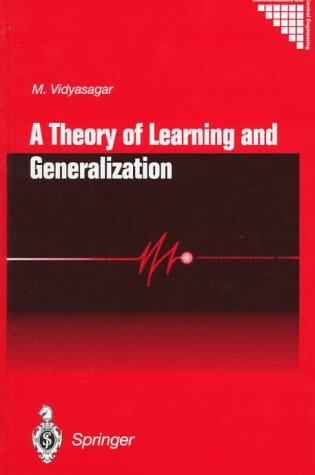Communications and Control Engineering
1 total work
Provides a formal mathematical theory for addressing intuitive questions of the type: How does a machine learn a new concept on the basis of examples? How can a neural network, after sufficient training, correctly predict the output of a previously unseen input? How much training is required to achieve a specified level of accuracy in the prediction? How can one "identify" the dynamical behaviour of a nonlinear control system by observing its input-output behaviour over a finite interval of time? This text treats the problem of machine learning in conjunction with the theory of empirical processes, the latter being a well-established branch of probability theory. The treatment of both topics side by side leads to new insights, as well as new results in both topics.
